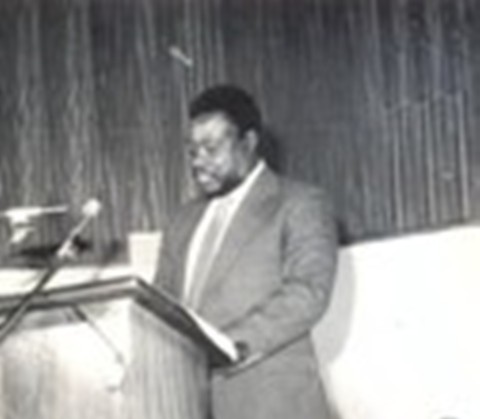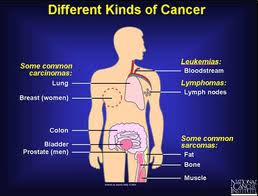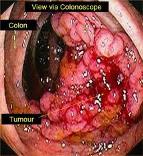A Tribute to Professor Atta Mills and the Ghana Health Services
The Samaritan Research Group
In a country known for its strong believe in superstition, and where the traditional African mind, could always have a meaning to a death or bad omen even where scientifically, the cause, had been of common knowledge or well established, Ewuraekua might have probably, chosen a taboo topic, motivated by speculated media revelation that President J.E.A. Mills, did suffer from throat cancer: an illness erroneously perceived in this part of our world as a curse or demonic aspersions and therefore, forbidden to be discussed in public.
As a Practice Nurse- with a speciality in Adult and Geriatric nursing; and having been part of inter-professional team in the delivery of frontline care to cancer patients, I would like to reassure cancer patients, their families, relatives and love ones that although research has found that some cancer risks like genetics cannot be avoided, there is no such thing like “satanic aspersions” or “family shame” if one is diagnosed with this cancerous disease.
According to news-medical.net, cancer causes about 13% of all human deaths and may affect people at all ages, even foetuses, but the risk for most varieties increases with age. The American Cancer Society reveals that 7.6 million people died from cancer in the world during 2007. Cancers can affect all animals. The research adds that nearly all cancers are caused by abnormalities in the genetic material of the transformed cells. These abnormalities may be due to the effects of carcinogens, such as tobacco smoke, radiation, chemicals, or infectious agents. Other cancer-promoting genetic abnormalities may be randomly acquired through errors in DNA replication, or are inherited, and thus present in all cells from birth. So cancer is not a spiritual disease but what?
In Ghana if we drink-drive or fail to maintain our car or observe road traffic regulations and as a consequence lead us to a fatal road accident that takes our lives or causes damage to property, traditionally, the gods/spirit ancestors are blamed. Accordingly, Sheep or goats are slaughtered to appease them for our supposed wrongdoings. Unsurprisingly; we those who might scorn this traditional belief; more often than not are nicodemously, tempted to make way to “the mallam or soothsayer”, for divine intervention although we acknowledge scientific research that has been able to conquer the myths/superstitions that clouded such diseases as measles, polio and convulsion that hitherto killed millions of infants in Africa.
Writing under the subheading: “Understanding What Cancer Is and How Cancer Develops”, Lisa Fayed, of About.com Guide, has this to say: “We all have heard the word “cancer” many times, however very few people understand the disease and how it develops. Cancer is a term that encompasses a complex group of more than 100 different types of cancerous diseases. Cancer can affect just about every organ in the human body. Many people are surprised to learn that cancer can affect parts of the body like eyes and the heart. Each type of cancer is unique with its own causes, symptoms, and methods of treatment. Like with all groups of disease, some types of cancer are more common than others.”
Whereas I intend not to question the power of God or Allah and the spirit world; I am tempted to think that our overreliance on prayer camps and soothsayers, at the expense of research; timely medical intervention and treatment, not forgetting social inclusion, and empowerment, is doing us more harm than good. The illustrations here are that knowing the causes of our ailments and how they might develop or progress, might psychologically, go a long way in helping us to live effective and meaningful life with any disease that might befall on us. Like all diagnoses, in the United Kingdom, the focus of most cancer centres is to provide emotional support and empowerment for people affected by cancer and their close relations to live with, through and beyond cancer. I now consider how cancer develops.
The starting point in answering this question from my basic human anatomy lessons is that the organs in our body are made up of cells which divide and multiply as the body needs them. Research has established that when these cells continue to multiply when our body doesn’t need them, the result is a mass or growth, also called a tumour. In the medical parlance, the growths are considered either as benign or malignant. Whereas benign is considered non-cancerous, malignant is cancerous. Benign tumours are rarely life threatening and do not spread to other parts of the body and therefore, can often be removed. According to Fayed, the cells within malignant tumours have the ability to invade neighbouring tissues and organs, thus spreading the disease.
Although most cancers are said to develop and spread this way- via an organ – blood cancer like leukaemia, do not. Leukaemia is a cancer that starts in the stem cells of the bone marrow that make blood cells. They affect the blood and the organs that form blood and then invade nearby tissues. Bone marrow is the soft, spongy material that fills the centre of most bones. Blood stem cells (immature blood cells) develop into either myeloid stem cells or lymphoid stem cells. Cancer symptoms vary based on the type of cancer disease.
These symptoms, in the words of Balentine and Davis, usually represent simple infections such as bronchitis or sinusitis which could be symptoms of cancer of the lung, head, and neck. And that anyone with a cough that lasts more than a month or with blood in the mucus that is coughed up should see a doctor. In the respiratory system, mucus aids in the protection of the lungs by trapping foreign particles that enter it, in particular, through the nose, during normal breathing. Asthmatics (people suffering from asthma) often complain of thick and viscous mucus because when you have asthma, excess mucus is produced, blocking the airways. This causes breathing difficulty as the airways become clogged due to decrease in the mucus drainage. In the next paragraph, I will consider treatment of cancer.
I attempt not to discuss in detailed the types of cancers, symptoms, the physical and the emotional pains or stresses that cancer patients and their carers go through. But I am tempted to mention in passing that there are four standard methods of treatment for cancer: surgery, chemotherapy, radiation therapy, and immunotherapy/biologic therapy. When one is initially diagnosed with cancer; a cancer specialist (oncologist), will provide the patient with cancer treatment options. S/he will recommend the best treatment plan based on the type of cancer, how far it has spread, and other factors like age and general health.
Although close family members and carers are involved in this exercise, personal autonomy means that the final choice unless mentally incapacitated, will lie with the patient who makes the treatment decisions based on doctor’s recommendations, possible second opinions, and other information gathered from qualified professionals. Regrettably, the qualified professionals mentioned here are neither pastors nor imams or soothsayers. There are so many things that we could do to prevent cancers. Having said, I must state that this report is for readers’ information only and must; accordingly not serve as an advice or replacement to medical care and counselling. JusticeGhana takes no responsibility for this.
However, lifestyle adjustments are crucial prevention to most diseases. For example, mayoclinic.com/health writes that you can reduce your risk of throat cancer by not smoking, not chewing tobacco and limiting alcohol use. But Fayed argues that most people don’t realise that cancer is preventable in many cases. And that learning what causes cancer and what the risk factors are is the first step in cancer prevention. “Of course, some cancer risks like genetics cannot be avoided. Smoking is the most significant cancer risk factor that we can reduce. It is responsible for not only lung cancer, but many other types of cancer…”
Cancer prevention is defined as active measures to decrease the incidence of cancer. This can be accomplished by avoiding carcinogens or altering their metabolism, pursuing a lifestyle or diet that modifies cancer-causing factors and/or medical intervention (chemoprevention, treatment of pre-malignant lesions). The annual report from National Cancer Institute, at the National Institutes of Health, USA, shows that rates of death in the US from all cancers for men and women continued to fall between 2004 and 2008. The estimated new cases and deaths from cancer in the US (2012), is as follows: New reported cases: 1,638,910 (this does not include nonmelanoma: skin cancers), Deaths: 577,190.
In the U.S., lung cancer causes about 30% of cancer deaths but only about 15% of new cancer cases; the most commonly occurring cancer in men is prostate cancer (about 25% of new cases) and in women is breast cancer (also about 25%). According to the American Institute for Cancer Research (AICR), cancer is responsible for about 25% of all deaths in the U.S., and is a major public health problem in many parts of the world. A visit to cancerfoundationofghana.org, directed by Dr. Alex Adjei, puts the types of cancer in Ghana over the last 10 years as follows: Breast cancer- 15.4%; cervical cancer- 12.7%; prostate cancer- 10.4%; gastrointestinal cancers- 10.2%; and oropharyngeal cancer- stands at 8.3%.
Dr Adjei notes that in Ghana, cancer killed more adults than malaria. The most common malignancy was breast cancer, accounting for 15% of the cases. The cumulative study of malignancies was captured in the data base of the department of pathology at the Korle-Bu Teaching Hospital. The Cancer Society of Ghana; founded in May 2003, is a full member of Union for International Cancer Control (UICC). It aims to contribute to cancer control through: – promoting the prevention, early detection, treatment of cancer and promoting cancer counselling services in Ghana. Yet, a visit to its website, painted a fainted hope.
The Cancer Research UK runs high-profile health awareness campaigns and provides clear information to help people understand more about cancer and the steps they can take to reduce their risk of developing the disease. In the UK there were around 157,250 deaths from cancer in 2010. That is around 430 people in every day and one person every four minutes. Of this reported cases, more than three-quarters of cancer deaths occur in the people aged 65 and over. Accordingly; Cancer Research UK and its affiliate organizations, have been lobbying the government to ensure cancer stays at the top of the political agenda.
In its drive to conquer cancer by 2012 and beyond the Cancer Research UK, has ambitiously, set 10-point goals for itself- one being the provision of sufficient scientists, doctors, nurses and infrastructure that will be in place to ensure continued rapid progress in the fight against cancer. The passing of Prof Atta Mills of cancer must be the start of this voyage.
Researched and Compiled By Gina Amoakwa-Fordjour
JusticeGhana.com/The SamaritanProject



